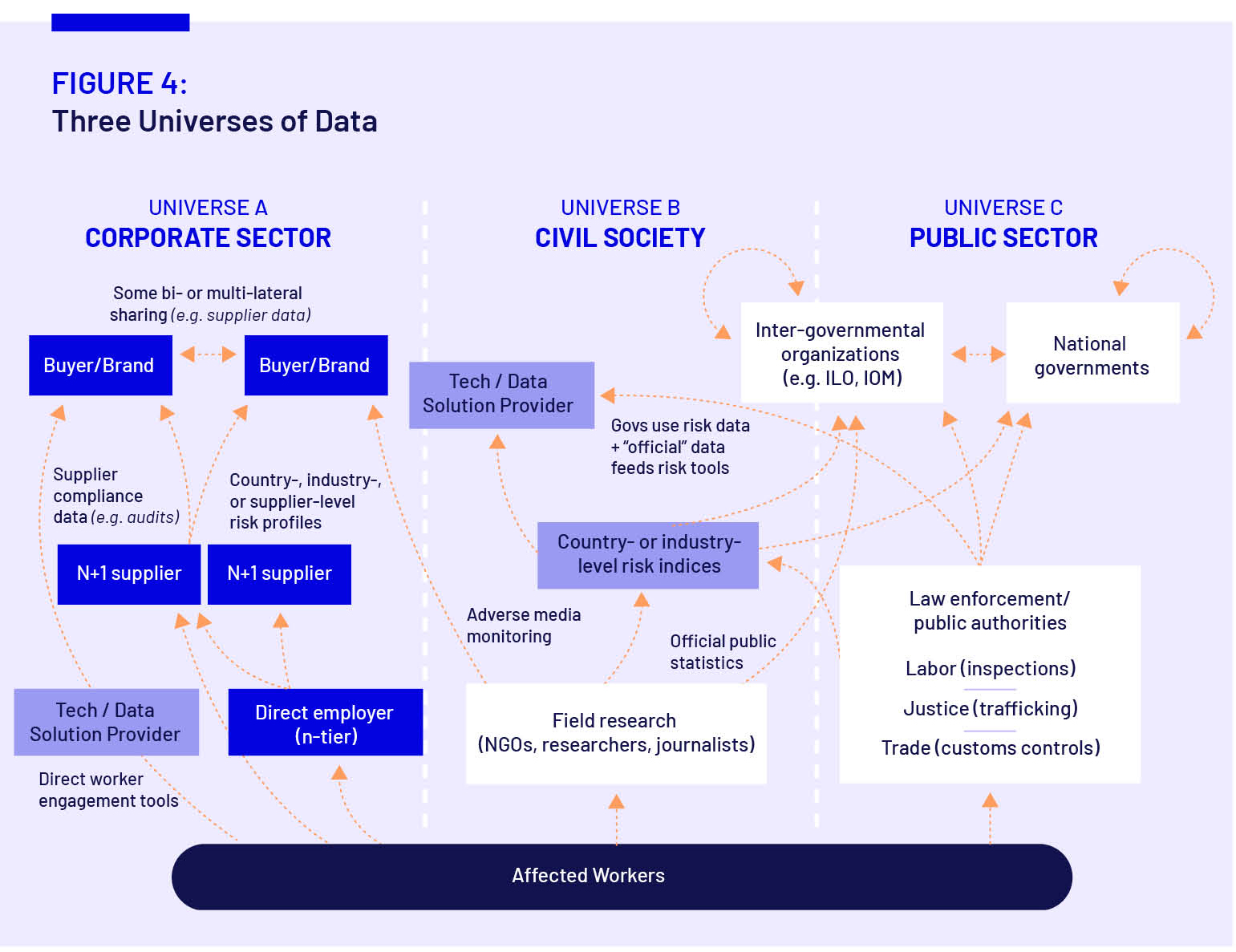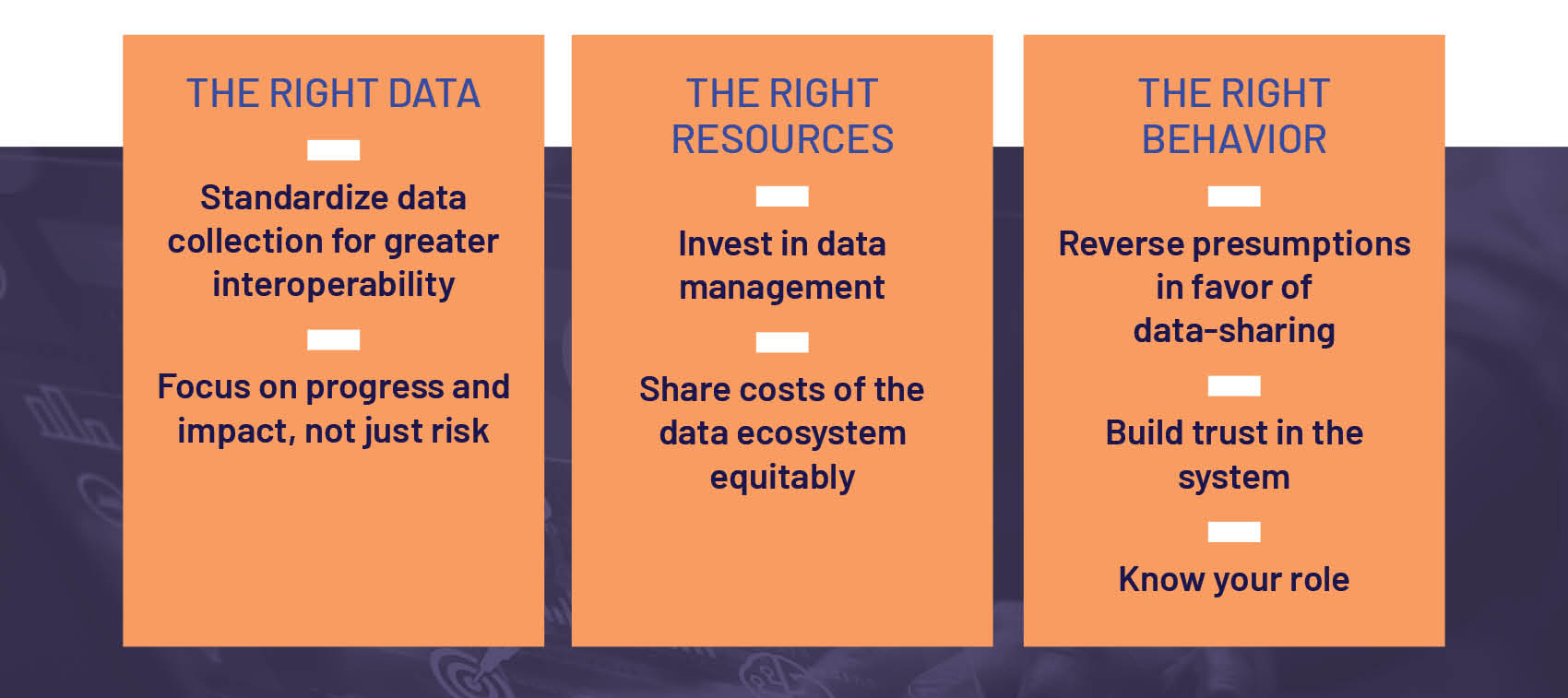About the Supply Chain Data Program
This workstream aims to strengthen the supply chain data ecosystem to prevent forced labor. Our work is focused on breaking down information siloes through the creation of shared practices and standards and technological solutions to create and effective federated data ecosystem over the long term.

Our Key Objectives
- To create better alignment of business practices on forced labor data collection to enable a level-playing field and reduce subjectivity in categorizing risks of labor exploitation in supply chain.
- To understand and pilot the role that technology can play in improving the current data collection ecosystem.
The end goal is to contribute to shaping a collective environment where all actors engaged with supply chains can allocate more time on data analysis rather than data aquisition.
Current Activities
- In collaboration with TAT member companies and selected corporate suppliers, TAT is now leading the development of a single cross-industry forced labor data standard for business.TAT is running a pilot to identify potential tech solution(s) for a federated data architecture to connect disparate datasets in one selected industry and test proof of concept.
- TAT is leading a dialogue series between leading governments and TAT member companies to identify opportunities for private – public partnerships to strengthen the forced labor data ecosystem.
Past Activities
- In 2023, TAT led a research project to understand the types of forced labor data being collected by different private and public sector actors, challenges to data sharing between these actors and the elements which might enable a stronger data ecosystem to facilitate the overall identification and prevention of forced labor in corporate supply chains, for the ultimate benefit of individuals at risk, or in situations, of forced labor.
- In early 2024, TAT issued its 7 system-wide principles which outlines principled recommendations to business, policy-makers and civil society to enable an effective supply chain data ecosystem where data is shared at greater scale and for greater impact.
- In 2024, TAT led a policy dialogue series with government and intergovernmental stakeholders to explore how government data—like labor inspection results and hotline reports—could inform human rights due diligence efforts, the barriers to data sharing, and opportunities for public-private partnerships. Learn more.
- In early 2025, TAT published Standardizing Data Collection on Forced Labor: Benchmark of Practices and Gap Analysis (read the report) which provides insights into how businesses and public sector actors collect data on forced labor risks and opportunities for greater standardization, based on over a year of research and stakeholder engagement.

